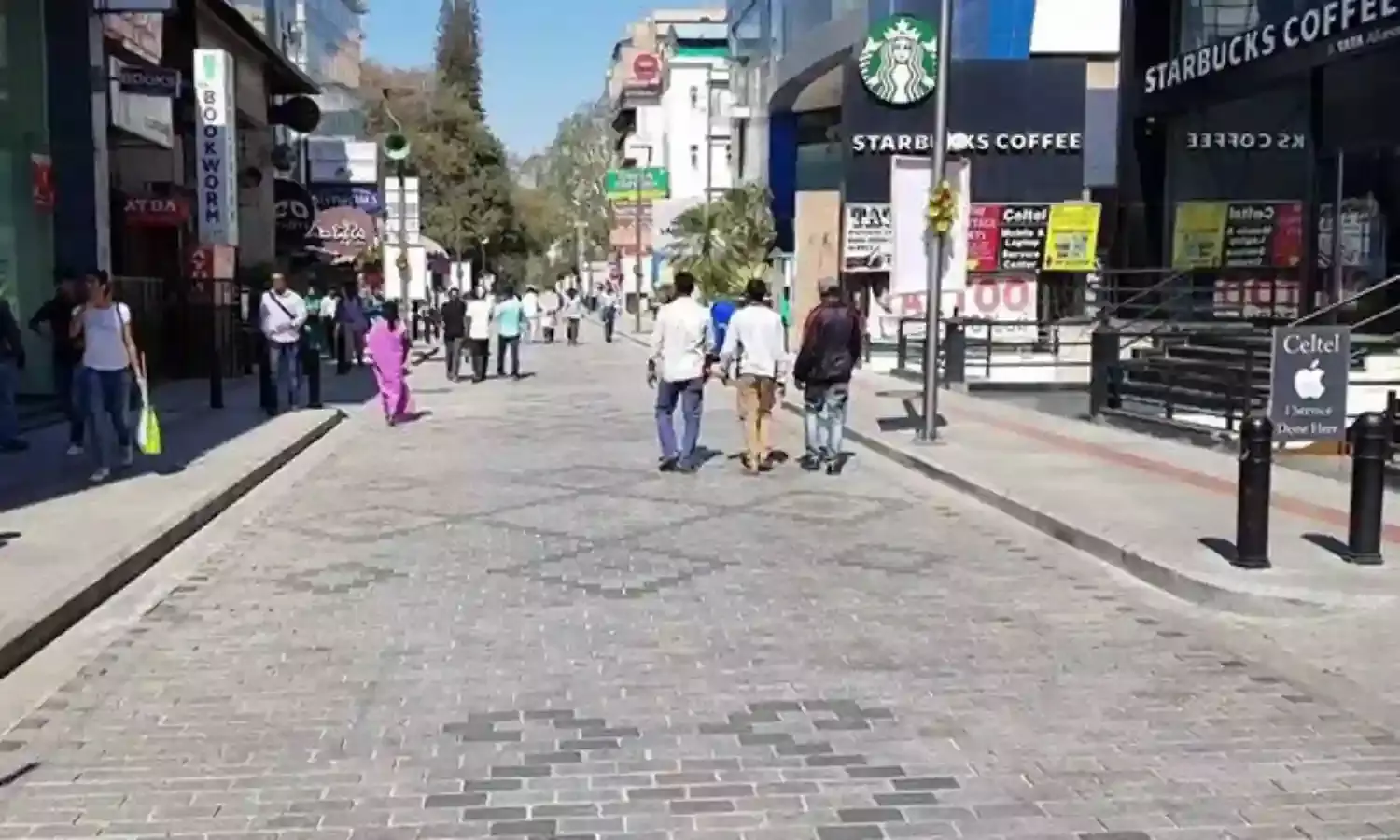On The Campaign Trail: Bengaluru Uber Youth Has Reservations About the BJP
The young and urban voter on Church Street, Bengaluru

BENGALURU: With all eyes on the upcoming Karnataka Legislative Assembly Elections to be held on May 12, The Citizen team travelled to parts of Karnataka in the districts of Mandya, Mysuru and Mysuru rural, trying to understand who the people were voting for and why.
Among the many others, one of the interesting take away from the conversations we had with residents of Mandya and Mysuru rural, who were mostly supporting the JD (S) or the Congress, was the opinion that the BJP would win handsomely in Bengaluru. During the 2014 General Elections and in several other State Assembly elections after, PM Modi found plenty of favour with the youth of the nation. Modi won support with them by projecting himself as a strong, decisive leader, who would bring change in the fortunes of the Indian youth and enable them to fulfil their aspirations.
In much of the country people voted the BJP into power primarily owing to the ‘Modi Factor’; while many may not have been supporters of the BJP, they were supporters of PM Modi, thereby propelling the BJP to power at the Centre.
In the Gujarat Legislative Assembly Elections held in December 2017, the Congress put up a good fight in rural districts, but the ‘Modi Factor’ had charmed the urban voters, giving BJP a majority in urban Gujarat.
Keeping in mind this trend and Modi’s popularity with the urban youth and elite voters, we felt it was important to understand what was attracting them to Modi. Thus, on Sunday morning The Citizen team set out to speak to young and urban voters on Church Street, one of the busiest streets in the Central Business District, of Bengaluru city.
For those unfamiliar with Church Street, it is the first cobblestoned street in Southern India, which was recently inaugurated. Lined with pubs, bars, eateries, bookstores and shops on both sides, it is frequented by many of Bengaluru’s citizens. The presence of Starbucks, Blue Frog, the good old Blossoms bookstore, and the India Coffee House are some of the reasons which make it a favourite among the city’s youth.
We began by speaking to some of the people sitting in the Starbucks on Church Street, followed by speaking to people at the India Coffee House, Blossoms bookstore and Church Street Social. Many of those whom we spoke to were young individuals who had finished college or were working. What we were specifically looking to understand was the ‘Modi factor’ and why the urban elite were so enamoured by it.
To our surprise, it was only a few of the many whom we spoke to, who said that they would support BJP in the upcoming Karnataka Legislative Assembly Elections, the reasons stated by them mostly was that their family has traditionally always voted from the BJP and therefore they too shall, or because they simply wanted a change in government.
A majority of youngsters though preferred voting for the Congress or the JD (S); they feared that if the BJP came to power there would be a rise in communal politics and moral policing in the state. For some of them, the extended deadline for bars, pubs and eateries was also a factor in supporting the Congress. One of the individuals we spoke to pointed out that social justice remained threatened with the BJP in power, and also accused the BJP of being ‘hypocritical and conservative’, and lacking any form of critical thinking.
Some of the voters we spoke to remained indifferent, stating that irrespective of which party came to power in Karnataka, the state of affairs would remain the same, and the middle class would still not get any benefits. One of the individuals we spoke to seemed to prefer the Congress stating that the party ‘is more transparent, with fewer skeletons in its closet’, but stated that credit must be given to Modi for ‘putting India on the map’ even though, India’s foreign policy and relations have deteriorated under the NDA. He also admitted that the use and influence of social media was a big factor in Modi gaining supporters.
Another person we spoke to said they would prefer ‘BJP at the Centre, but Congress in the state’ since they are satisfied with the work done by the Congress in Karnataka. One of the recurring factors, as a result of which the Congress seems to have found support, is improved women’s safety in Bengaluru. Most of the individuals we spoke to, expressed their concerns about women’s safety, and said that the present government in Karnataka had done well to ensure the safety and security of women.
From the several conversations, it appears that Siddaramaiah seems to have found support from the city’s youth and elite for taking Modi head on, his stance on the Cauvery issue and the fact that he has been able to galvanise and gather support for issues affecting the residents of Karnataka; with some also calling referring to him as a ‘rock star’.
Like most elections in India, it is hard to predict who will emerge victorious in the Karnataka Legislative Assembly elections on 15th May, when the results are announced. However what does seem to be clear is that the ‘Modi factor’ seems to be waning among the young citizens of Bengaluru, with most of them rejecting the BJP’s communal politics and moral policing.
Another interesting insight gained from the various interactions was regarding the role of national leaders in this election. National leaders, be it PM Modi or Congress President Rahul Gandhi, seemed to have few takers in Karnataka. The repeated rallies and twitter wars do not seem to have worked too well for either; regional leaders like Siddaramaiah and B.S Yeddyurappa seem to hold the reigns in this election, with the scales tipped in the favour of Siddaramaiah and his government.



